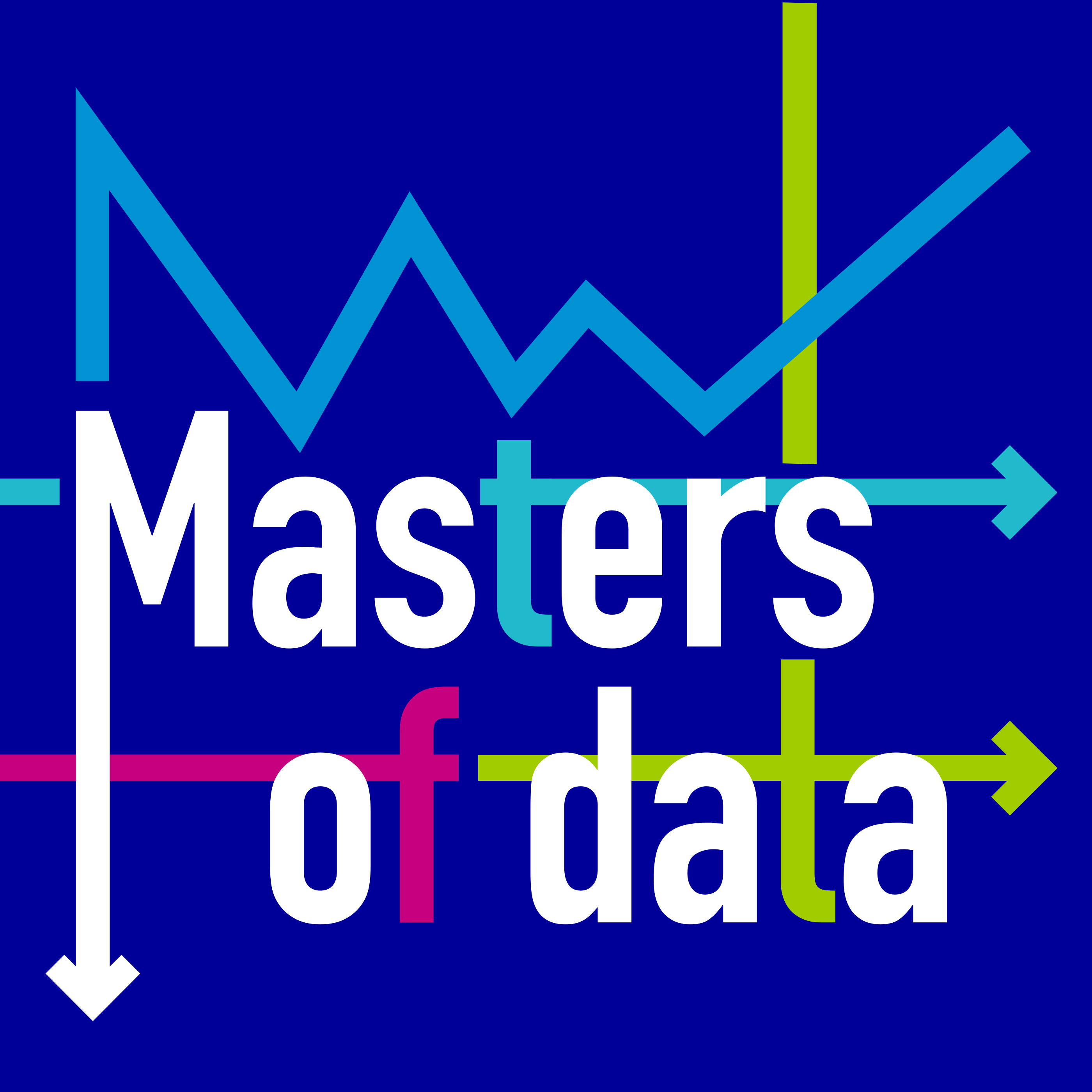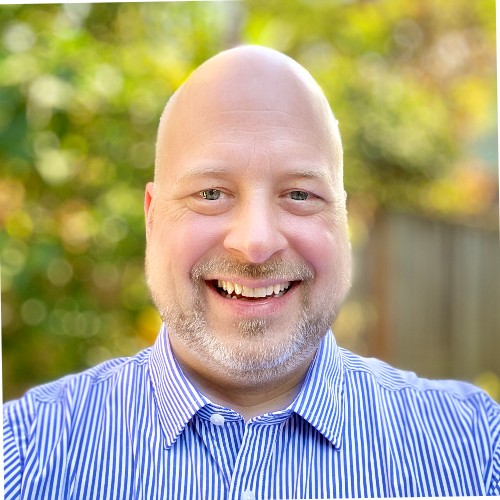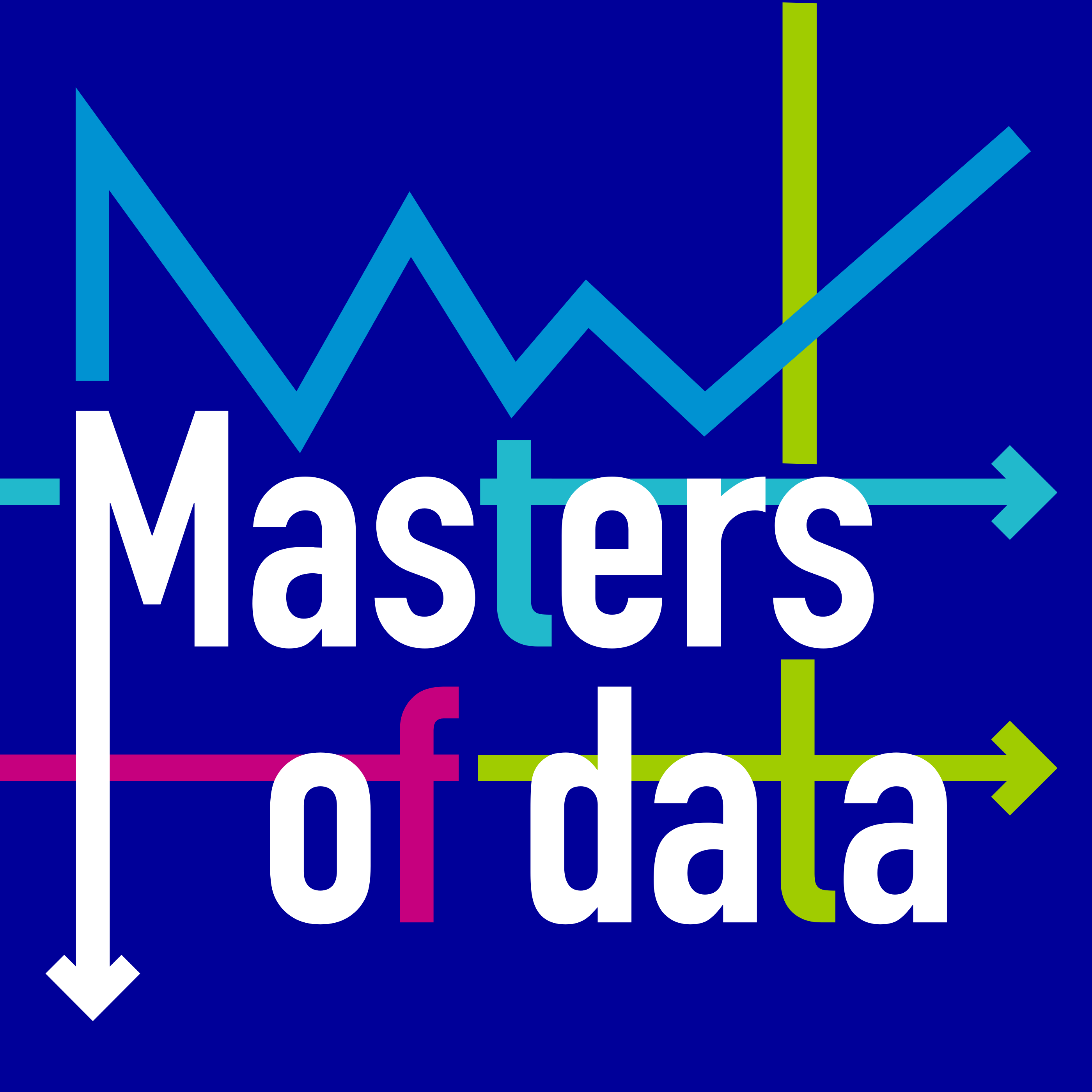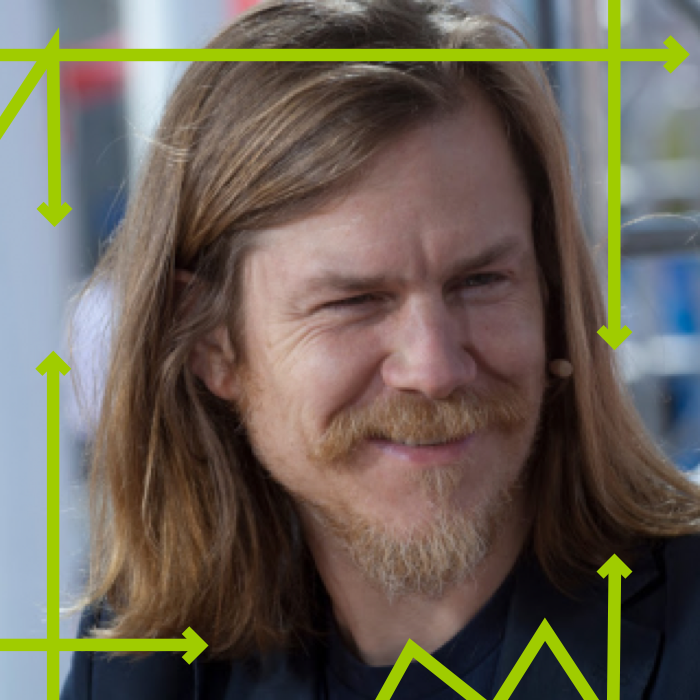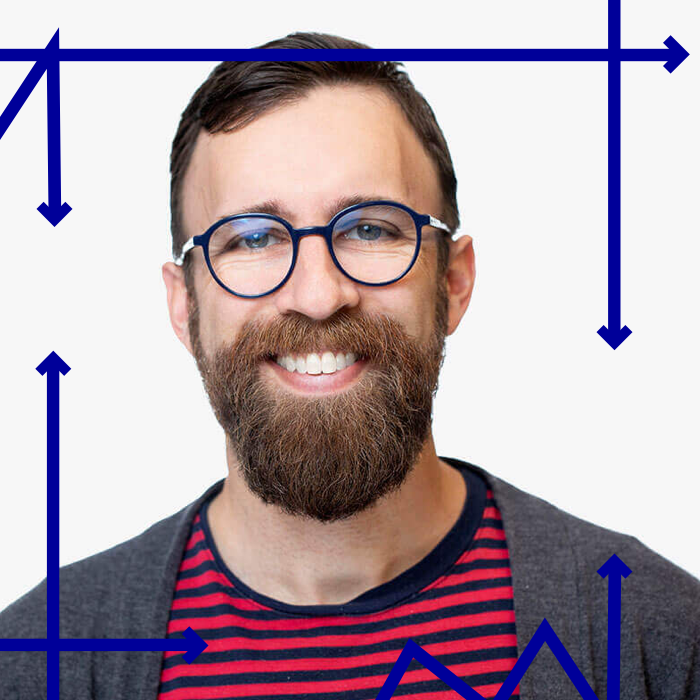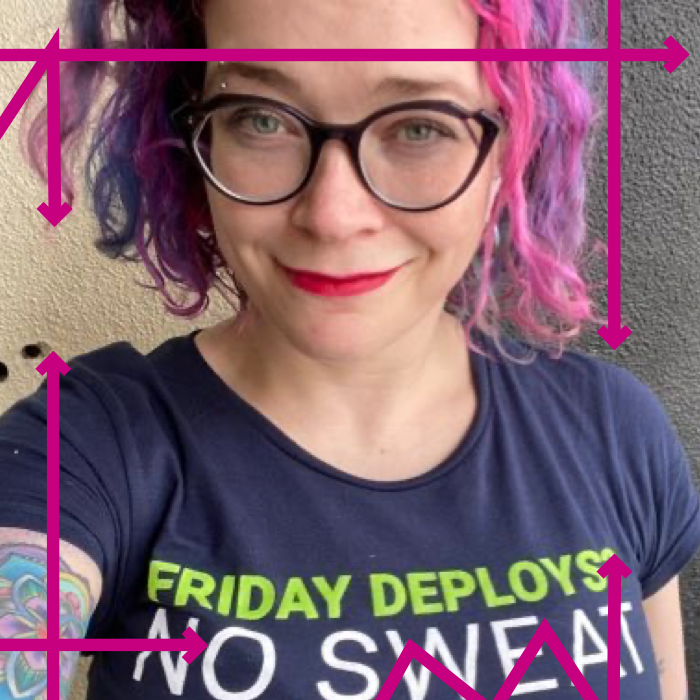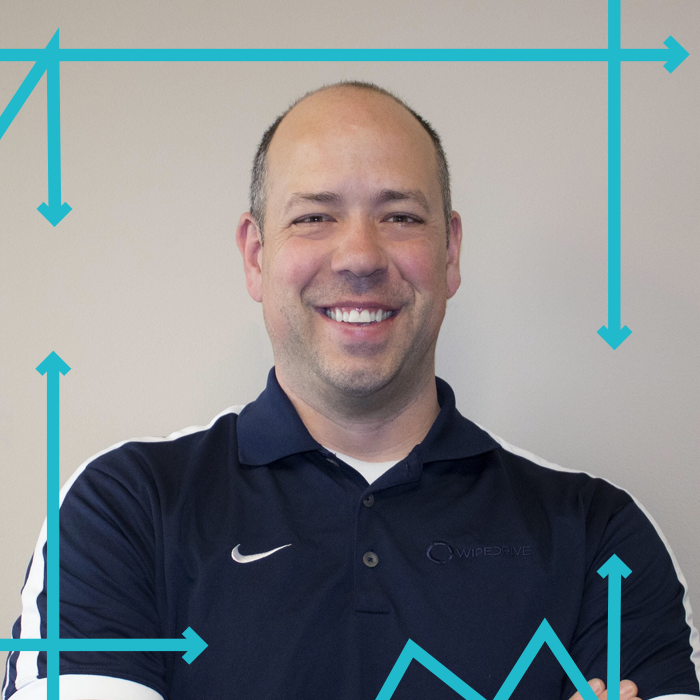Establishing Trust with Customers (Guest: Scott Vlaminck)
- 0.5
- 1
- 1.25
- 1.5
- 1.75
- 2
Ben: Welcome to the Masters of Data podcast, the podcast that brings the human to data, and I'm your host, Ben Newton. IOT, the internet of things, your refrigerator and your toaster connected to Twitter, right? No, it's so much more than that. SmartThings is so much more than that. Our guest today, Scott Vlaminck, co-founded SmartThings with six other guys in the spring of 2012. Their goal was to make your world, your house, smarter.
Ben: In the fall of 2012 they raised over $1.2 million in one of the biggest campaigns ever on Kickstarter, and only two years later in 2014 they were acquired by Samsung for $200 million. That's pretty amazing.
Ben: I caught up with Scott at Sumo Logic's User Conference and we talked about his journey and about the challenges of running devices in that most private of spaces, your home, and how do you maintain trust with your customers. So without any further ado, let's dig in.
Ben: Welcome everybody to the Masters of Data podcast. I have with me here today Scott Vlaminck from ... He's a co-founder and VP of engineering at Samsung SmartThings. Thanks for coming on man.
Scott: Thanks for having me.
Ben: You know like always, I always start these things by just understanding a little of your background. How did you get into technology?
Scott: I have always been interested in technology, and before starting SmartThings was really just a cloud server developer. Interested in all sorts of technology and really just focusing on building things that I wanted to see exist in the world.
Ben: Did you come from a computer science background? Were you self-taught, or what was that-
Scott: I did not... I was aerospace engineering major in college.
Ben: Really?
Scott: I taught myself to program. At that time in the late '90s the internet was booming and...
Ben: There weren't a lot of jobs in aerospace either.
Scott: Not a ton of jobs in aerospace and there were a lot of jobs in the computer industry. So taught myself first HTML and Perl and from there grew into JAVA.
Ben: Yeah I was disappointed to find out that apparently Perl is now an old man's programming language. I thought it was cool because I programmed for... it's Python now, or something. I don't know. I'm not cool enough to know.
Ben: We were talking about you had a big group of co-founders to start SmartThings. Tell me a little bit about that story, why did you guys start SmartThings? What was the problem you were trying to solve?
Scott: There were seven us, which is a large founding group. As I mentioned before, we had good overlapping set of skills and interests where we complimented each other really well without really overlapping in what we wanted to do and so it worked out really well for us.
Scott: And the birth story of SmartThings is one of the founders had a cabin in the mountains that he owned with his in-laws, and they lost power and the pipes froze and burst. Nobody was around at the time. They didn't find out for weeks later. So a couple weeks of clean up and fixing it and he was sitting on, after cleaning up the house and fixing it up, sitting on the couch reading on his Kindle after just downloading a book, looking at his phone and realizing that he's connected with all of his friends from the coast but couldn't get an update from his house to say that temperature was too cold or that the pipes were bursting or anything along those lines.
Scott: Because their neighbor has keys to the place and could've turned the water off. If they had only known. So starting to think about that, we started researching different ways of knowing information about your home and investigating different sensors for what you could do with your home. And from that we decided there was something there we were right on the cusp of having the right technology to make that a reality, and decided to start after some proof of concept work. Started to start a company.
Ben: You guys did a... was it a Kickstarter campaign? Was it...
Scott: Yeah so we started in April of 2012. Launched Kickstarter in August I believe of that year. We seemed to touch a nerve on what people wanted to do and were interested in. And we had a very successful Kickstarter campaign.
Ben: At that point it was one of the most successful ones right? It was...
Scott: Yeah, I think second most successful technology project at the time after the Pebble watch.
Ben: One thing that kind of occurred to me when you guys did that. Do you feel like it gave you a stronger connection to your customers really early on, because that's super important when you're starting a company?
Scott: It absolutely did. We had a group of people who were focused on supporting the campaign for Kickstarter. So we tried to be really engaged in the forums, if people asked question we were right there to answer them. And really trying to foster that back and forth to make sure we were understanding the needs of our customers. And what they wanted to do. And that is for me, the culture of the company throughout since then.
Scott: That experience really drove us to then also have a deep attachment to our community. As a platform we rely on other people to write code that runs on the platform to provide value to our customers ultimately. And so following the Kickstarter campaign we also set out our own community forums for having those conversations so that our developers, our third party developers that were working on the platform could communicate with each other. And they felt like they had an outlet way to reach us directly as well. And so we started our developer engagement story right from the start making sure we had developer evangelists on the platform interacting with people in the community forums right away.
Ben: That's really cool. So early on was it more about connecting to third party devices as well. I mean was it really more about providing a hardware platform for people to hook into?
Scott: Yeah, I think one of things that smartphones did differently compared to others in the market at the time was we really saw ourselves as a software company, a cloud-computing company, not a hardware company, not a device manufacturer.
Scott: Our goals as technologists and founders was to not have separate apps for everything we do in our life. We didn't want to open an app to unlock our door, didn't want to open a different app to turn on the lights, a different app to turn on music. We wanted one unified way of doing that, and that told us that we needed to build a platform with a good user experience something that we would want to use.
Scott: And we knew early on that we weren't, there's no one company that will manufacture every device that a customer might want to use in their home. And that drove us to this story of open, we really believed that to be successful platform today, you need to be open to allowing any type of device to work on the platform. Anything that customers want to bring to the platform, we need to find a way to support that. And that's where the power comes from in the platform. That openness.
Ben: Well you guys are still pretty unique in that regard, right? I mean that's still particularly in the space of what you guys with home automation is that kind of openness really still kind of uncommon? Or..
Scott: I think there are flavors of it everywhere. Because people understand that it's an important aspect but I think that we go the deepest in that area. Along those lines, simple things like there were two competing low energy protocols for interacting with home automation devices, Zigbee and Z-Wave.
Scott: We made a decision early on to support both protocols. That means we have two radios in our gateway hub so that customers don't have to know if they need to... if they go to the store and they want to buy a motion sensor, or a door lock, or a camera, they don't need to know if it's Zigbee or Z-wave, because ultimately customers don't care about what the underlying protocol is. They just want to know if it will work.
Ben: Yeah, and well I mean that's goes back to the customer connection you're talking about. You had to put in more work, you had to invest more of it than you end up having a better connection to your customers because you're taking that off their plate, they don't have to worry about it.
Scott: Right, that's the goal is to make it super easy for customers to connect with SmartThings, to get going. One of the things even early on we always talked about is how do we provide value to the customer regardless of whether they bought any of our devices. And so similarly how do we take from unboxing to wow in a short of time as possible.
Ben: Yeah and I like that. How long ago were you guys acquired by Samsung? It's been a few years now.
Scott: Yeah that I believe was in 2014.
Ben: That was pretty quick for an inception to being acquired.
Scott: It was pretty quick.
Ben: That was great. It's a great success story and I assume that's kind of unlocked a lot of opportunities for you guys as well because you're apart of a bigger company.
Scott: It certainly has. The scale and power of Samsung is an amazing thing to see. And to be able to work with the teams that build the TVs and refrigerators and appliances I think allows us to make sure that we can expose all of the features that customers want to automate in a way that makes sense to them.
Scott: At the same time we are always trying to be cognizant that we're doing it in a standardized way not a Samsung specific way. Because even though we're acquired by Samsung we as well as Samsung more broadly also believe in the power of an open platform. They understand that consumers won't buy only Samsung devices and so the value of SmartThings goes down if we don't work with any device that a customer wants. And that means that other manufacturers of home appliances we also want to integrate and work with them as well, not just a Samsung fridge.
Ben: Yeah still you'd say that. That's really great to hear that's a priority for you guys. Because it still feels like we have a lot of walled gardens.
Scott: There are a lot of walled gardens.
Ben: I think I probably live in one. But... When you and I were talking about what we would talk through one of the things I thought it was really great how you were talking about... I mean you guys are pulling in massive amounts of data from all these devices out there. There's a lot of things happening, a lot of different, let's call it telemetry, but a lot of different measurements. But you were saying customers really don't care, that's not what they're thinking about. They're not thinking about oh it's syncs is a bit here it's syncs as much here.
Ben: They're thinking about, "is somebody in my house? Are doors being open?" How do you guys think about that from a perspective?
Scott: You are exactly right that customers ultimately don't care about what it takes for us to build, provide to them, what it is they care about right. But obviously we do, and so many of the devices send a lot of information, not just the two cases that you mentioned. Motion sensors and door sensors they don't just send door open door close events. Every couple minutes they also send in a health check message saying, "I'm here, I'm on the network, here's what I know about myself. The door is currently closed."
Scott: If you think about your general day to day. Most people would get ready for work, leave for work, be gone for eight or ten hours, come home. That sensor isn't sending any open close data hopefully during that time. But it's constantly sending in data so we have a massive amount of device information coming into the platform every second that isn't necessarily actionable to users. But it's still important to make sure that we think of ourselves as being... we live in an eventually consistent world where our cloud representation of the device is delayed in some way. Because it takes time for that message to get from the device to us.
Scott: And ideally that's a very small amount of time but it's not zero. So we are constantly thinking about how those devices are connected and healthy, that their batteries are in a good state. So that we can give that information to customers as well. Because as you mentioned, customers don't care that their motion detector is sending messages but they really do care that it's working. So we have a lot of data that we try to make use of as a secondary, or tertiary way.
Scott: But present that to customers in a way that tells them just what they need to know, there is currently no motion in your house. Because ultimately that what people want to know. They want to know that I came downstairs in the morning and the lights turned on because I had an automation set up or I'm gone for work and my doors are locked but there's motion in my house. Was that something weird with the sunlight and the trees outside causing the shadows to move, or was that my dog moving, or something else, right. So I think understanding how that data, how to parse that data that's useful for consumers is really what we focus on.
Ben: And what have you found to be hard with that, because I mean honestly the way you describe it, that's sounds really hard.
Scott: Well it's a manner of all the things that make big data hard in general. It's the volume, the velocity, the variety of that data and how quickly is it coming in, how much do we take in. How can we determine earlier in the workflow what's an important event and what's an unimportant event so that we can make a better decision about routing that data to yes there is an automation that a person has set up for this. Like there's motion send me an alert because I'm not home or there's motion and there hasn't been all night and that means that the house is waking up and so it's time to kick off the morning routine.
Scott: I guess the hardest part is really that. It's how quickly the data comes in and just how much we have. Once we can make those decisions around what's important information and what's not. Then we get into the realm of how do we make sure that that's useful for customers and driving what they're looking for.
Ben: Well in particularly in that case, I'm thinking back to when I was messing with this stuff years ago, where I would connect and monitor devices and I was playing around with it and I'm not sure if anybody else would've thought that was particularity useful. If I was telling my then girlfriend, now wife about it, she's like, "yeah that's great but..."
Scott: Yeah it's funny in the early days before we knew that SmartThings would become a thing and we were doing some proof of concept I remember the first time I was able to get a light to turn on. And I was telling my wife how excited I was and she was sitting on the couch and she just reached over and she said, "you know Scott, I turn the light on from right here too, right." And she flipped the switch and then that helped bring me back to it's more than just that. But I was still very excited because it was proving out the plumbing that would turn out into all this other automation stuff.
Ben: That gets back to one of those core things which I thought was interesting about how you relay the data. Because geeks like us honestly... it's fun just the creation process, it's a fun thing. I connected these pieces and these things together and I made something happen. I mean that's exciting but the reality is that most people in the world, it actually has to solve a problem for them.
Scott: Absolutely.
Ben: I'm sure that's been a problem for home automation all along. Because yeah it's great you can turn on lights and stuff like that, but why?
Scott: Yeah I think that's one of the keys, especially in the early day of SmartThings is really understanding how do we convey that message to potential consumers. Like what can you do and why does it matter. A lot of people didn't know that they wanted to automate their lights for example, because they've lived their entire lives flipping switches on.
Scott: And one of the memories that stands out for myself is one day my wife asked about a motion sensor that I had in the basement. Because I live in a hundred year old house where the light switches aren't where you would normally put them, like in the basement where our laundry is the light switch is only at the bottom of the steps, not at the top of the steps.
Ben: Oh interesting. Yes.
Scott: One of use cases that I built out of my own house, just dog-fooding it was when there's motion on the stairs, turn on the basement light. When there's no motion in the basement at all for five minutes, turn it back off.
Scott: And one day I came home from work and my wife was asking about it and a battery had gone dead in one of the sensors. And she told me that she realized for the first time that she had become to rely on that automation without even noticing it. And related to the earlier story about being able to turn the light on herself, when the light didn't turn on for her, as she walked into the basement, took two steps in darkness, that's when she realized that she hadn't turned on the light on by hand in months.
Scott: It sort of snuck up on her, and when the battery went dead in that motion sensor, that's what really triggered for her. She's like, "I get it now, I see how this can be useful in a subtle but pervasive way." And it's simple use cases, like I said, that a lot of people didn't think they care about automating. In my house I have two young kids and we're in a two story house and when I'm the first one up in the morning when I go downstairs I have it turn on the downstairs lights. Then make sure that the upstairs lights don't turn on because I don't want my kids to get up any earlier than they have to.
Scott: And it's those sorts of things that once you get used to it, people start to see the value and how that can move into other areas of their lives. For example, I have friends who automate their door locks, I have some people who find it terrifying to think about automating their door locks. But I have friends who when they come home it unlocks the door and when everybody in their house leaves it will make sure that they're locked.
Scott: And it's those sorts of things also... so my friend said that he hasn't carried keys in years now, like house keys for that reason.
Ben: That is really interesting, that's the trick right. Like you said making so pervasive that...
Scott: And it means different things to different people.
Scott: So as we talk about whether it's locks or lighting we talk about to me lighting for example seems like a convenience. But when you talk about it being in a dark basement where the stairs are dark there's also a safety aspect to that right. And then having it automatically turn off after five minutes of inactivity, that gets into cost savings. And so they're all sort of wrapped together. But different people come to SmartThings for different reasons.
Scott: A lot of the same use cases, but for different reasons.
Ben: One question comes to mind to me. What's one of the most interesting use cases you found that people actually taking advantage of home automation?
Scott: In the same way that different SmartThings for different reasons, what different people find interesting varies a lot. So we have example people using a sensor on the gate of the fence around their swimming pool in California to alert anytime it opens. So they make sure that their kids aren't going into the pool unattended.
Scott: We have people who use those same sensors to alert anytime the cabinets on their sink are open, so make sure that their young kids aren't getting into Drano or whatever you have under there. And then we have people who obviously for smart home security cases if there's motion grab a video clip with my camera and send me a text message so I can see it, so I can understand who just came into my house if I'm not there.
Scott: To more fun ones where we early one did a video of Rube Goldberg machine, just a series of ridiculous things that kicked one automation off into the next. And then we have people in the community, one person had a fancy scotch cabinet with lighting under the shelves and as he walked up to it the lighting would come up and you would hear "ahhh" and as you walked back the lights would slowly dim again. And we have a number of people who would share videos of their Halloween set ups with SmartThings, whether it's something opening or motion or proximity to the door or what have you.
Ben: I bet you can make some pretty cool Halloween things with this. You got my mind racing.
Ben: I guess that's part of what makes it sticky is that not only are people doing those core things, but they can let their minds wander and they can do some really interesting things that makes them a big fan.
Scott: Yeah that one of the things that is really rewarding is that it touches on what people want to do in their lives for real reasons but then it also allows people to play. Anytime you could do both of those things then it gets super fun.
Ben: Yeah, no absolutely. One thing we talked about too when we were some things we might talk about was in some sense not only it's back to the safety thing there as well, you guys have a different position that some other technology vendors do. Is that you are literally in people's houses, you are in their safe space, you are in their personal space, you are collecting data about their personal space, you are protecting their personal space on some level right. Well you definitely are.
Ben: So how does that change how you think about the data, and how you think about privacy, and how you think about what you guys are doing as a company in that regard?
Scott: We take data privacy very seriously obviously. Like you said, people are inviting us into their homes. And it puts us in a privileged position in that relationship and that we care a lot about that we're making sure we're doing what's right by them, doing what they want.
Scott: So data privacy is super important because we have information, maybe not direct information. But you could make a reasonable assessment about whether people are home or not, for example. And so that's something that means a lot to us because as someone with young kids it matters to me that I trust the companies that have data about me or my family or my home life. So we believe that customers own their own data and we use it in a way that is ultimately working toward their desires and goals and generally that's automation use cases.
Scott: Some people just want for example, temperature data, just to understand what their house looks like. That not particularly a sacred data, but as far as we're concerned it's censored data nonetheless. So like we make sure that we're protecting our customers to the best of our ability.
Ben: It's what you were saying what's interesting to different people is going to be different according to different people. I assume what's important and private to them is going to be just as unique.
Scott: Absolutely. We don't know what that temperature data is used for but there maybe people who don't want that information leaking out. Before one reason or another and that's not for us to say, it's their data. And so we treat all of that data the same way.
Ben: I would expect too, when we were talking about it's very important for you guys to be an open system. I would expect that that's probably a pretty important part of your brand identity too. Because people are trusting you as a brand.
Scott: Certainly.
Ben: So I guess to put a bow on it, wrap up here. What's next, where are you thinking about next as far as what you're doing, what the company's doing?
Scott: Bringing it all back to where we started, our goal is to focus on making sure that we're delivering value for our customers. In whatever way that means to them. So that the first part of the company's history we focused on home automation use cases because it was a growing industry and that's what people wanted to do.
Scott: Now we're sort of being pulled into the smart home security space because people want to have cameras, they want to automate them, they don't always want to be streaming that camera data 24/7. They maybe only want to do it when they're not home.
Scott: And so we're getting pulled into the smart home security space, and we have a vision that goes beyond that as well for IOT and making sure that again it's being driven by value to customers and what they desire.
Ben: That makes a lot of sense. Well this was a lot of fun. I think what you guys are doing is really exciting and I mean it's a pretty amazing story so I wish you guys a lot of luck as you continue to grow.
Ben: Thank you for taking the time.
Scott: Yeah thanks for having me, I really enjoyed it.
Ben: Okay, that's a wrap.
Speaker 3: Masters of Data is brought to you by Sumo Logic. Sumo Logic is a cloud native machine data analytics platform. Delivering real-time continuous intelligence as a service to build, run, and secure modern applications. Sumo Logic, empowers the people who power modern business.
Speaker 3: For more information go to sumologic.com. For more on Masters of Data go to mastersofdata.com and subscribe. And spread the word by rating us on ITunes or your favorite podcast app.
Page of
DESCRIPTION
Our guest today, Scott Vlaminck, cofounded SmartThings with 6 other guys in the spring of 2012. Their goal was to make your world - your house - smarter. In the fall of 2012 they raised 1.2 million dollars in one of the biggest campaigns on Kickstarter. Only two years later in 2014 they were acquired by Samsung for $200 million dollars. Now their IOT devices are in your inner sanctum - your home - and they work hard to earn your trust.
